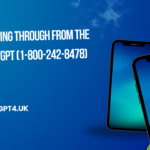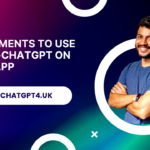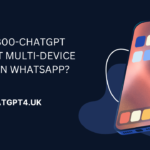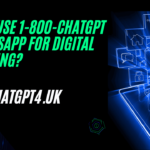The digital revolution has impacted virtually every industry, and human resources is no exception. In fact, HR is undergoing a major transformation powered by artificial intelligence. This fusion of AI and human resource management is revolutionizing the function, morphing it from a traditionally people-focused domain into a technology-driven powerhouse.
AI-Powered HR is taking over tedious administrative tasks, freeing up HR professionals to focus on more strategic priorities. It provides unparalleled insights through data analysis, enabling more informed talent management decisions. AI also creates more personalized, seamless experiences for candidates and employees. This amplifies recruiting, onboarding, training, performance management, and more.
The AI-powered HR revolution is just getting started. As the technology continues advancing, HR will become even more efficient, data-driven, and human-centric. AI won’t replace human resources professionals, but rather will amplify their capabilities. The future looks bright for this dynamic duo poised to transform the employee lifecycle from start to finish.
The potential of AI in HRM
With AI in HRM, we’re no longer talking about replacing human jobs. Instead, consider AI as the cool new intern that does the legwork, freeing up the HR team for more critical aspects of their roles. From recruitment to employee engagement and analytics, AI in HR has the potential to streamline operations, expedite decision-making, and enhance the overall employee experience.
Understanding AI in HR
What is AI in HR?
So, what do we really mean when we talk about AI in HRM? In simplistic terms, it relates to the usage of AI applications and tools in various aspects of HR. It means using AI to become more efficient in recruiting and hiring processes, enhancing employee engagement, performance, and retention, and diving into intricate HR data analytics.
How does AI work in HR?
Unlike the grand and menacing AIs of sci-fi lore, AI in HR is not about computers becoming sentient. Instead, it’s about leveraging technologies that can analyze patterns, learn from data, and assist in decision-making. This involves using algorithms, machine learning, predictive analytics, and more in HR processes.
Applications of AI in HR
AI in recruitment and selection

It’s no secret that recruitment can be a bit of a hassle, but AI is giving this process a well-deserved facelift. Remember how we wished for delegating some of the repetitive tasks? Well, AI is here to heed our call. With AI’s ability to automate resume screening, HR professionals can shift their focus from tiresome sorting to engaging with potential hires. In addition, AI can also handle scheduling interviews simplifying the process. It’s like having a reliable co-worker who never goes on vacation.
Looking at candidate assessments, AI doesn’t drop the ball here either. It can conduct a preliminary troll through candidates’ data, presenting recruiters with a refined list. This results in better candidate matches and reduces time-to-hire. Talk about hitting the bullseye every time!
Recommended AI tools: Magical, Skillate, Fetcher.
AI in employee engagement and retention

Once you’ve got the right people in, maintaining employee positivity becomes key. Here again, AI plays a crucial role. AI applications can derive valuable insights into employee engagement by analyzing sentiments and measuring satisfaction. This all-seeing AI eye helps HR teams address potential issues before they come knocking. We are talking about predicting turnover risks and suggesting personalized measures to amp up engagement. Bottom line? Think of AI as a trusty compass which guides retention strategies in the right direction.
Recommended AI tools: Leena AI, Textio
AI in HR analytics

Moving on to the realm of analytics, this is where AI truly shines bright. From processing employee performance data to planning future workforce requirements, AI takes the heavyweight data analysis off HR teams’ shoulders.
AI doesn’t just skim surfaces; it delves deeper to extract bits of information that contribute to a more comprehensive understanding of the entire organization’s human factor. This makes room for strategic, data-backed decisions, making HR teams’ initiatives timely and effective.
Recommended AI tools: Effy AI, Visier
If you think about it, AI in HR is kind of like a boot camp instructor—minus the yelling, of course. It helps cut through the extraneous, leaving organizations with the muscle of a well-tuned human resource machine that can do more with less.
3 top benefits of AI in HR
Increases efficiency and productivity
Using AI in HR is like turbocharging an age-old process. It empowers HR to become exponentially more efficient and productive, in a way that would make even a highly caffeinated worker bee envious.
AI does the obligatory, yet time-consuming tasks, like scanning through resumes or scheduling interviews. This leaves HR professionals free to focus on the strategic, high-value tasks that require a human touch. Think of it this way: AI helps HR teams to do the number crunching, sorting, and searching. Essentially, AI serves as an extremely hardworking virtual intern that doesn’t need sleep or coffee breaks.
Improves decision-making
When it comes to decision-making, AI doesn’t merely give HR a seat at the table—it builds the table. By crunching data and patterns to provide insightful predictions and analytics, it ensures that HR’s decisions aren’t just educated guesses, but rather strategic choices backed by solid data.
This means that HR decisions take a turn from being reactive to becoming proactive. Instead of just putting out fires, HR can use AI to start predicting where fires might occur. It’s like having a crystal ball that’s powered by data instead of witchcraft.
Enhances employee experience
AI isn’t just about making life easier for the HR team; it plays a starring role in enhancing the overall employee experience as well. Using AI, HR can deliver personalized, responsive, and engaging digital experiences that go beyond traditional email blasts or one-size-fits-all policies.
Think personalized learning and development resources, instant responses to benefits queries, and even real-time mood tracking. It’s like HR suddenly got a whole bunch of superpowers, and everyone benefits from them!
3 challenges and considerations of AI in HR
Data privacy and security
Just as every coin has two sides, AI in HR isn’t without its challenges. The shiny new AI toys come with a few tricky questions, and tops on the list is data privacy and security. AI systems handle massive amounts of sensitive employee data—everything from performance reviews to personal health details.
When AI enters the arena, HR has to ensure data privacy rules aren’t just in place, they’re lock-tight. After all, no one wants a rogue AI spilling company secrets or personal information, right?
Ethical considerations
In using AI, HR also has to grapple with some deep-set ethical considerations. The practices of fairness, transparency, and responsible AI usage need to be ironclad to prevent any unintentional biases creeping into the system. (AI has a tendency to be racist, for example, if you weren’t already aware.)
Remember the old saying “Garbage In, Garbage Out”? AI is only as good as the data it’s given, and biased data could lead to biased outcomes. That’s something your HR team needs to avoid like the plague.
Cost and training
Finally, let’s talk about the elephant in the room—cost and training requirements. Transitioning to an AI-powered HR platform can be pricier than sticking with the old school methods. And while some platforms, like Magical, are free (hurray!), there can still be costs associated with training up your team.
In addition to embracing the change of pace, there will also be a need for comprehensive training—to ensure that everyone knows how to get the best out of the modern tools at their disposal. Like the HR version of driving lessons on a fancy new car.
Case Studies of AI in HR
Let’s have a look at a few practical examples of companies smashing those HR goals with the help of AI.
Case Study 1: RPG Group uses chatbots to answer employee questions
When you think of AI, most people think of chatbots like ChatGPT. But did you know that you can train an AI chatbot on your internal HR information so it can answer employee questions in real-time? That’s exactly what RPG Group did—with the help of Leena AI, they set up virtual assistants to act as employee personal assistants, available around the clock to answer any questions they might have about pay, benefits, time off, or more.
The results are pretty staggering: 92% of employee support requests were answered within minutes, ticket resolution time went down from a full day to only 4 hours, and the company as a whole saved thousands of hours.
Case Study 2: Recruiters at Toast use Magical AI to save hundreds of hours on repetitive messaging
AI is more than just chatbots though. Recruiters at Toast like Liv Natawidjaja use the AI-powered tool Magical to save time on repetitive tasks like sourcing candidates and messaging. This free Chrome extension lets their team generate tailored messages on platforms like Gmail and LinkedIn, and save them as templates to send faster.
Here’s why Liv says she wouldn’t want to do her job without a tool like Magical:
With Magical, I can message 100 more people in a week. Easily. It’s saved me a lot of time copying, pasting, and tweaking.
Case Study 3: Duolingo uses AI to create more inclusive job postings
AI can provide insights on your job descriptions to help you discover hidden problems and biases that your regular HR staff might overlook. This was the case for Duolingo, who used the AI platform Textio to analyze their job descriptions. What they found was shocking: they only scored a 54 out of 100 on a scale detecting inclusive and engaging language.
Using recommendations from the AI tools, they were able to eventually boost that score to 90. This has been a key to them achieving their goals of hiring more diverse and inclusive employees within the company.
The Future of AI in HR
The neat thing about the future is it’s something we can predict to an extent by looking at the present and past. And given what we’ve seen with AI’s arc, its trajectory in HR looks fascinating. It’s like seeing the trailer for a movie and knowing it’s going to be a blockbuster.
Predictions and trends
Currently, AI in HR is like a seed that has sprouted and is starting to grow. In the future, expect it to blossom into something truly remarkable. Can you imagine office spaces filled with virtual assistants? Not just a simple software, but more like an intuitive copilot, helping HR navigate through their hectic week. These AI-powered assistants would automate even more HR processes, mastering magical tasks like answering employees’ queries real-time, zeroing down on ideal candidates, and managing a host of administrative matters swiftly.
Another exciting future direction could be predictive hiring. Imagine casting an AI gaze over a pool of applicants and knowing instantly which individuals would be the perfect fit, not only skills-wise but also in terms of team synergy, culture compatibility, and even longevity at the company. That’s game-changing and it’s not as far-fetched as it may seem.
Besides, hiring is just one side of the coin. Retention, development, and maintaining a motivated workforce is the other half. AI is paving the way for personalized employee development programs, making the learning experiences bespoke for each individual. Employee A might work best with interactive, gamified learning, while Employee B might prefer podcasts or webinars. In the coming world of AI in HR, everyone’s personal preferences will come into play, creating tailored programs to boost each person’s growth.
Moreover, beyond just personalization, AI can help to predict the skills and capabilities that will be most valuable in future tasks, keeping your workforce one step ahead of the curve. With such foresight, employees can be steered towards learning specific skills they’ll soon need. Think predictive text, but for employee development.
Finally, as companies embrace a more remote or hybrid work model, AI could play an essential role in keeping teams connected and engaged, mirroring traditional office camaraderie in a high-tech setting.
Frequently Asked Questions
Can AI replace HR professionals?
No, AI cannot replace HR professionals. While AI can automate routine tasks and provide valuable insights, the human touch and expertise of HR professionals are still essential for complex decision-making, strategic planning, and employee engagement.
How can AI help in sourcing the right candidates?
AI can help in sourcing the right candidates by analyzing large volumes of candidate data and matching the most suitable candidates with job requirements. AI-powered algorithms can identify relevant skills, experiences, and traits, enabling HR professionals to make more informed decisions regarding candidate selection.
What role do chatbots play in the AI-driven HR landscape?
Chatbots play a crucial role in the AI-driven HR landscape. They can assist HR professionals in answering frequently asked questions, providing information about company policies and benefits, and guiding employees through various HR processes. Chatbots enhance employee experience by providing instant support and reducing the workload of HR teams.
Start using AI in your HR department today—for free
The impact of AI in HR cannot be underestimated. From automating mundane tasks to leading the way in data-driven decision-making, AIHR is heralding a new era of HR—more efficient, strategic, and employee-centric. As we journey forward, it’s time to not just adopt, but embrace the AI revolution in HR and set the stage for a future where HR tech and touch co-exist to create a better and more efficient HR world.
Looking to try AI out on your HR team? Magical is a free Chrome extension that lets you message job candidates faster using the power of artificial intelligence and text expansion templates. Give it a try to see why recruiters love it and how it can save you and your teammates up to seven hours a week.
1. What are some key benefits of using AI in HR?
AI can increase efficiency, improve decision-making with data insights, automate repetitive tasks, and enhance the employee experience with personalization. It allows HR teams to be more strategic.
2. What types of tasks can AI automate in HR?
AI can help with resume screening, interview scheduling, onboarding, benefits administration, data analytics, training recommendations, and more. It handles routine and repetitive tasks.
3. Does AI aim to replace human HR professionals?
No, AI augments and empowers HR professionals rather than replacing them. It handles repetitive work so HR staff can focus on strategic priorities requiring human skills.
4. What are some challenges with implementing AI in HR?
Key challenges are maintaining data privacy and security, avoiding algorithmic bias, and costs/training requirements for new tech. Ethical use of AI is critical.
5. How can AI improve the recruiting process?
AI can automate sourcing and screening of candidates. It can analyze resumes, skills, and interview data to match candidates to open roles. This makes recruiting more efficient.
6. How can chatbots help with HR tasks?
HR chatbots can instantly answer common employee questions on policies, benefits, time off requests etc. This improves the employee experience.
7. Does AI in HR aim to predict future skills and needs?
Yes, AI analytics can identify current talent gaps and predict what skills will be important down the line. This enables forward-looking development.
8. Is AI in HR a growing trend among companies?
Yes, adoption of AI HR tools is rapidly increasing. More companies are leveraging AI to transform recruitment, employee engagement, analytics, and more.
For a more immersive experience, check out our web story and our incredible blog for more contents.







